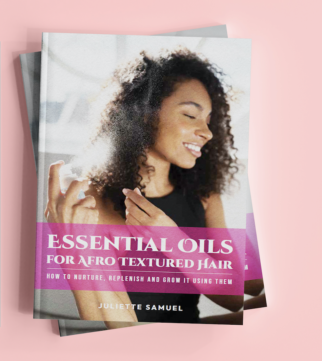Black skin can be affected with any number of conditions, regardless of its pigment. As African-Americans and those with dark complexions, we have some problems that occur more often for us and thus must pay closer attention when caring for our skin.
Acne is a problem where excess oil production causes hair follicles to plug up. Acne may manifest itself in pustules, pimples, whiteheads, blackheads and cysts. Many teens suffer from acne, but people of other ages can be affected as well. Acne in African American skin pigments can cause the skin to become discolored for extended periods of time, and thus, closer attention must be paid to preventing acne.
Another issue in caring for black skin is ingrown hairs. Since African American hair shafts are more curved, the point of the hair may curl inward after a close shave, and pierce the hair follicle’s wall. This causes bumps to form. One way to solve this problem is to let the hair grow longer so it does not get the chance to grow back into itself.
Removal of hair with chemicals works, but it should only be done once each week. Be sure to wipe off all the product when you are finished, to make sure your skin doesn’t become irritated. Permanent hair removal is another option, as are the newer types of medicated creams that can slow down your hair growth. Consult your dermatologist before you attempt any of these black skin care methods.
The skin of African Americans contains more melanosomes than does other skin. These are the cells that will determine the color of your skin. This can be a positive point, because melanin protects more effectively against premature wrinkling due to sun exposure, and skin cancer.
If you experience any type of skin trauma, you will likely have more hyper-pigmentation than fair-skinned individuals do. Your skin may darken in the areas that were affected by a scrape or cut. To reduce the chances of hyper-pigmentation, use non-abrasive African American skin care treatments and avoid harsh scrubbing. The darkening of the skin can last months or years before it fades, but chemical peels and microdermabrasion have been used successfully to lighten the dark areas.
Many African Americans experience vitiligo, which is a skin problem where the cells that carry pigment are destroyed, leaving white patches on the skin. Some dermatologists feel that this may be part of an autoimmune disease, and that your body is attacking the cells that produce pigment. The amount of pigment loss varies with each individual, with some people losing pigmentation over their entire body. Some people never get their original skin tone back, but others do.
We must always be mindful when caring for our beautiful black skin.
To Your Beauty,
Juliette Samuel
Esthetician/President-NYRAJU Skin Care





 Facebook
Facebook Twitter
Twitter Delicious
Delicious Digg
Digg Myspace
Myspace StumbleUpon
StumbleUpon Youtube
Youtube